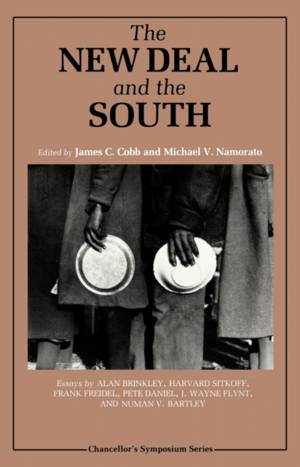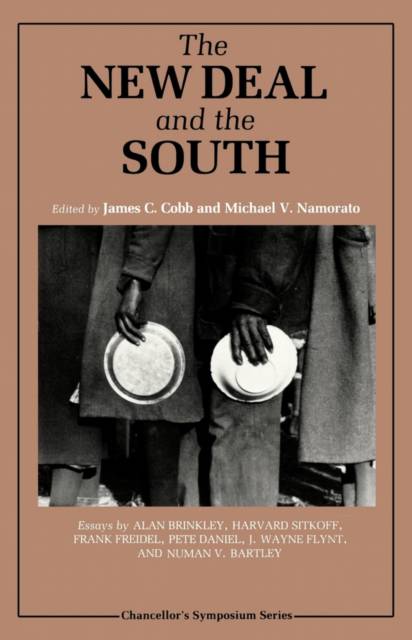
- Retrait gratuit dans votre magasin Club
- 7.000.000 titres dans notre catalogue
- Payer en toute sécurité
- Toujours un magasin près de chez vous
- Retrait gratuit dans votre magasin Club
- 7.000.0000 titres dans notre catalogue
- Payer en toute sécurité
- Toujours un magasin près de chez vous
The New Deal and the South
59,45 €
+ 118 points
Description
The New Deal and the South edited by James C. Cobb and Michael V. Namorato essays by Alan Brinkley, Harvard Sitkoff, Frank Freidel, Pete Daniel, J. Wayne Flynt, and Numan V. Bartley The New Deal and the South represents the first comprehensive treatment of the impact of the Roosevelt recovery program on the South. In essays dealing with the New Deal's overall effect on the South, its influence on southern agriculture, labor, blacks, and politics, and its significance as a turning point in the region's history, the contributors provide readers with an opportunity to develop a more complete understanding of an era which a number of historians now mark as the period in which the New South actually began to become new. Each of the essays in this collection was presented at the Ninth Annual Chancellor's Symposium on Southern History, held in October 1983, at the University of Mississippi. In the introductory essay Frank Freidel identifies the New Deal period as one of the most important phases in the modernization of the South, one which linked the wishful thinking of the New South era to the much-publicized contemporary Sunbelt South. Pete Daniel describes the New Deal's role in the mechanization, consolidation, and corporatization of southern agriculture, a phenomenon that swept thousands of southerners from the land and paved the way for an all-out crusade to industrialize the region. In his analysis of the New Deal's impact on southern labor, Wayne Flynt assesses what the New Deal did and did not mean for southern industrial workers. Alan Brinkley stresses the tensions induced in southern politics during the New Deal era, particularly those caused by the Democratic Party's increased responsiveness to blacks and organized labor. Harvard Sitkoff, in surveying the New Deal's impact on black southerners, cites the limited nature of that impact but points to the seeds of future progress sown by the Roosevelt Administration and its policies. In the concluding essay Numan V. Bartley emphasizes the collapse of a paternalistic labor system and the shift of power from small town to urban elites and suggests that the years 1935-1945 may soon be seen as the "crucial decade" in southern history. The New Deal and the South provides both the serious student and the general reader with an up-to-date assessment of one of the most critical transitional periods in southern history. James C. Cobb is a professor of history at the University of Georgia. Michael V. Namorato is a professor of history at the University of Mississippi.
Spécifications
Parties prenantes
- Editeur:
Contenu
- Nombre de pages :
- 184
- Langue:
- Anglais
- Collection :
Caractéristiques
- EAN:
- 9781604738674
- Date de parution :
- 01-09-84
- Format:
- Livre broché
- Format numérique:
- Trade paperback (VS)
- Dimensions :
- 140 mm x 216 mm
- Poids :
- 240 g

Les avis
Nous publions uniquement les avis qui respectent les conditions requises. Consultez nos conditions pour les avis.





